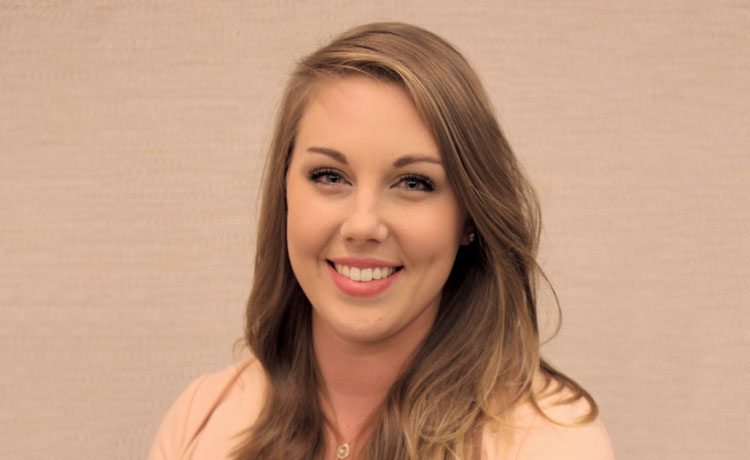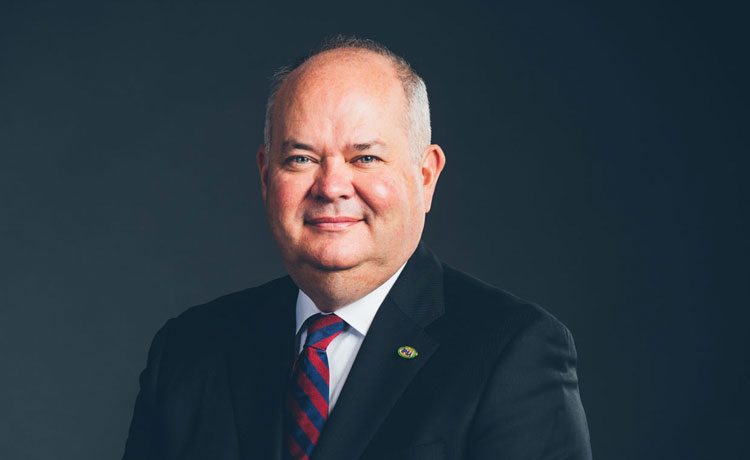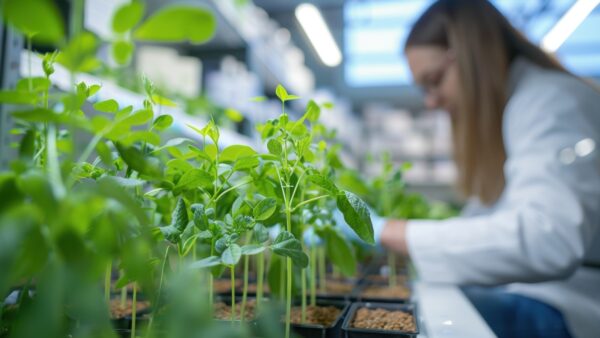The Independent Professional Seed Association is paving a path to help companies thrive.
It wasn’t that long ago when six seedsmen recognized the need for an organization to represent the unique needs of independent seed companies. Others recognized the value of such an organization, and with 80 charter members, the Independent Professional Seed Association (IPSA) was formed in 1989, less than 30 years ago.
Since then, the association has ebbed and flowed mirroring trends associated with a maturing seed industry, the agricultural economy, skillsets of executive leadership and the annual change in board leadership.
Despite the ever-changing landscape, IPSA’s charge remains the same: Promote the interests and capabilities of family-owned companies. The board of directors, comprising nine members, guides the policies and activities of the association, which focus on education, member services and business development.

Under Ruehle, the association grew its member participation and increased its visibility but in recent years had mostly maintained a status quo persona.
“He had done a lot with the organization and it [the annual meeting] was still growing in terms of participation,” says Lou Buice, who served as 2014 IPSA president. “But when you stay in a trade association that long, change can be good.”
After conducting a national search for a new chief executive officer, the board selected agribusiness veteran Todd Martin to lead.
With no association management experience, some might say he was an unlikely pick. But this southern seedsman was intimate with the workings of independent companies as well as multinationals, having worked for Syngenta since 1990 and most recently as head for brand distribution. But to the board, it just felt right — a natural evolution of sorts.
Martin was known for his strategic thinking, business acumen and being a savvy leader.
A former business partner, John Dombrosky, CEO of AgTech Accelerator, says: “Todd is a savvy, intuitive leader always on the look out for win-wins. When working with Todd on business development projects, mergers and acquisitions or licensing deals, I always felt more confident we could succeed. He brings energy, passion and acumen to deals and third party interactions.”
With Martin on board, IPSA has hit the pavement to make sure its members not only survive, but also thrive in a competitive environment with increasing consolidation, regulation and technology.
He’s been working closely with Randy Wilken of ProHarvest Seeds in Ashkum, Ill., who is the outgoing association president, and Christine Varner of D.F. Seeds in Dansville, Mich., who is the incoming president.
Varner, too, is excited about the path ahead for IPSA. “We’ve had some very good conversations with technology providers and amongst ourselves in positioning the association and independent companies,” she says. “We are in such a unique space; farmers want local and they want a trusted adviser. As long as independents are doing their homework, we can compete and we are much more nimble [than the multinationals].”
Wilken adds that these conversations with technology providers, guided by Martin, have allowed each party to walk away with a better understanding of the other. “It’s been a big commitment in terms of time and travel, but certainly worth it,” Wilken says. “It allows us to have a better understanding of their future plans and them of us. I’m confident they understand the importance of broad licensing to our businesses and that we are committed to our business and our industry.”

No Idling for the Board
The IPSA board and members set the policies and guide the activities, while Martin drives the truck, moving on the day-to-day pieces. And Martin has been pumping in new energy — in the form of education, scholarships, group buying programs, competitive research and communications.
Let’s start with communications and work backward. IPSA, along with the rest of the seed industry, is focused on improved communications — both internally to members and externally to policymakers, media and the public. To best serve this effort, the board elected to add a communications position to the staff, and Catherine Ballard joined the association as IPSA communications lead in July 2015.
Since then, IPSA has launched a new website that includes original and aggregated content of value to members. Additionally, members receive a bi-weekly newsletter that features association activities, meeting updates, hot issues and new members.
Couple those efforts with an advertising campaign that positions independent seed companies as a valuable partner to farmers’ row crop, cereal grain and forage operations, and that significantly increases IPSA’s reach and creates awareness.
But Martin is charged with doing more than creating awareness. He must create value and that’s where he excels in thinking outside the box to bring in new partners and programs.
“Todd’s long background in the seed industry has brought a new perspective and renewed energy to the organization,” Wilken says. “He’s ramped up member visits to understand their needs and what keeps them up at night. He’s not afraid to think outside the box or capture an idea and run with it, like our fact-finding mission to Cuba.”
Wilken adds that Martin is expanding the horizon of the organization and even member companies. “He’s always asking ‘what if?’ and forcing people to think about things that might not be seemingly apparent.”
Creating Value
For the past 20 years, IPSA has been managing a competitive research program that helps members evaluate seed treatments and seed enhancements with research locations on member and third-party sites throughout the country. While this is not new, Martin says it can be made better.
“We are taking the time to pause and look at what we can do differently to make it more valuable for members and participating companies,” he explains. “We are looking to pull out a more robust data set and help companies in their decision-making process. Can they find something that works better than what they are currently using? Can they find something that is more economical than what they are using but just as good? These are the types of questions we are asking to shape the research program moving forward.”
Meanwhile, Martin and Ballard collectively work to forge new partnerships and develop group buying programs that create “real value.”
One of these is the Seed Box Buying Program that IPSA brought in-house last year to bring members better discounts.
An upcoming program Martin is working to reinstate is the customer assistance program from major vehicle manufacturers.
“We are working directly with General Motors, Ford and Dodge,” Martin says. “The program was well received by members, and we are looking to create deep discounts across multiple vehicle classes.”
Furthermore, Martin has been working on a plan to allow members to buy healthcare at a group rate, but much of this will depend on what happens to the Affordable Care Act as the new administration comes into office. “We will continue to watch at the federal level what happens with the Affordable Care Act to see where we can plug in and try to create an opportunity for companies that are looking for different healthcare options,” Martin says. “The goal is broader availability for company employees at a lower cost.”
Healthcare is a subject that greatly affects small businesses, regardless of being in the seed industry. According to the National Center for Policy Analysis, it affects how companies hire, what they pay, growth and more.
The Drive for Better
“Our niche is developing programs to help build members’ businesses,” Martin says. “That’s what we are tackling — whether that’s through buying programs, breakout sessions around human resources, which is very important to our members, or through webinars on hot-button topics that come up throughout the year.”
Education is something Martin is passionate about and that will be on show at IPSA’s annual meeting, which will be held Jan. 10-12 in San Diego, Calif.
“We will continue offering topics like we’ve always done around marketing, sales and farm policy,” Martin says. “But we are working with partners, such as Corn States, to help attendees understand how to use their data, how to get that extra sale, and how to use analytics to build business. Our goal is to give them the tools, in that they can walk away from the meeting and say ‘that’s going to help my business grow,’ or ‘that’s going to help me do better with my employees,’ or ‘that’s going to make me more productive.’
“Those are the type of real-world things that I want us to accomplish in education. Our program will hone in on coaching and mentoring young people coming forward, coaching employees, retaining employees, sourcing employees, benefits for millennials — those pieces that are very important to all businesses going forward.”
While the Annual Conference Committee is hard at work selecting
the best topics and speakers for the program, the Education Committee is responsible for awarding scholarships — something that has exploded in the past three years under the guidance Shane Ohlde, committee chair.
“We’ve gone from getting 10 applicants a year to this year having more than 180 applications, and from giving three scholarships to giving 10 scholarships this year,” Martin says, noting that he hopes to be able to continue to grow the program to a $20,000 level in the coming years.
“It’s exciting to see younger generations really becoming part of the seed industry,” Martin says. “We see this as part of our continuing education platform. We have younger generations coming into these family operations and not just working in the warehouse but becoming part of the management teams. It is paramount for us to help train, promote, sponsor and educate the next generation.”
What’s happening right now in the seed industry with consolidation will certainly impact that next generation, Martins adds, and that is a cornerstone for the year ahead.
“We are watching that very closely and are building communications around it to make sure there is a large amount of awareness,” he says. “We want to help seed companies maintain knowledge about what’s happening with regards to consolidation and how their business could be affected and how their business could benefit.”
So how does all this get done? With a small team, multi-tasking is critical.
“It’s very important that we prioritize,” Martin says. “We hold everything to the questions: ‘What is in the best interest of our members and where is this going to create value for them?’ That brings certain efforts or programs to the top of the list, and ensures we create value.
“I’m always asking what can we do better that would be beneficial to members?”
Martin admits it’s not easy having 100 bosses to report to, but he says they are some of the best people in the world.
“When you wake up in the morning and know that those are who your members are and who your bosses are, that’s a good feeling. And I want to do everything I can to help them pave the path to a thriving future.”










